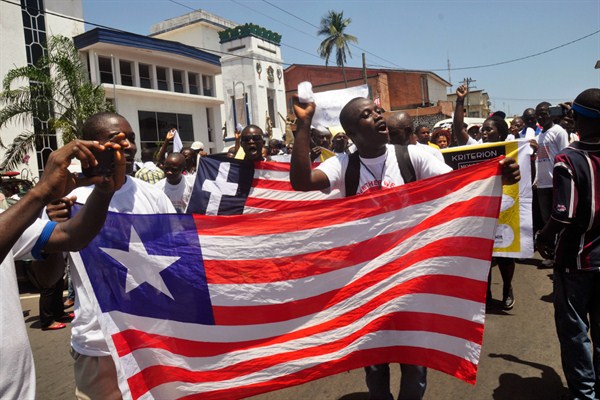Last month, a warlord turned senator in Liberia named Prince Johnson kicked off his candidacy for next year’s presidential election with a sharp denunciation of sexual minorities and those who defend them. “A government under our watch will never, ever accept gay rights,” said Johnson, who is best known for his role in wartime atrocities, including the torture and killing of President Samuel Doe in 1990. “Liberia is not Sodom and Gomorrah.”
The statement, and the attention it received from local journalists, was consistent with a campaign in which the rights of lesbian, gay, bisexual and transgender Liberians have taken on heightened political prominence. Liberia’s penal code criminalizes same-sex sexual conduct, and sexual minorities are sometimes subject to verbal and physical attacks. No political leaders have expressed interest in removing the anti-gay legal provisions or taking meaningful steps to curb anti-gay violence, and there is no indication voters would pressure them to do so. Yet the topic keeps coming up. FrontPageAfrica, a leading Liberian newspaper, has identified gay rights as one of the “major issues that could or should decide” next year’s general election. And candidates have repeatedly been asked for their views on same-sex marriage, despite the absence of a local movement to adopt it.
For some Liberian activists, the current climate recalls the period five years ago when LGBT rights last became a divisive and high-profile issue in the country. In December 2011, in a speech at the U.N. Human Rights Council in Geneva, then-Secretary of State Hillary Clinton unveiled a new U.S. government policy directing “all agencies engaged abroad” to promote LGBT rights and combat criminalization. “Gay rights are human rights, and human rights are gay rights,” Clinton declared.

